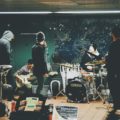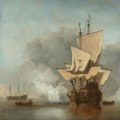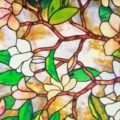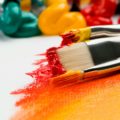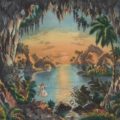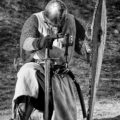This is the Part Two (and final part) of the true life story as artist written by Frank V. Cahoj for our Weblog. (Part One)
An Artist Portrait (Part Two)
I give an unbelievable amount of credence to these two early periods in my life: one of everlasting creation, one of analysis and disillusionment. The reason is simple—these are both traits that an artist must possess in order to fully utilize their natural talents. We must be willing to create at all costs, no matter the outcome. We must hunger for the process of creating, and not focus entirely on the results. If you do not enjoy the process of creating, how can you stand behind your creation? Yet, simultaneously we must be perfectionists, and run a fine-toothed comb through our ideas and inspirations. We must develop our ideas scientifically. We must understand our concept, our message, and our reason. If we fail to understand why we are creating, we will lose our focus, and quickly gold becomes dirt.
I had some help returning to my creative roots; my cousin was an artist who possessed more talent in his eyelid than I did in my whole body. When we would get together to play, I would spend most of the time watching him draw. He was older than me, and much more progressive, and his outlook towards his art seemed so nonchalant, so natural. He would just sit down and begin to draw. I remember him drawing a dragon with such impeccable detail, such precision. I wondered why I struggled so hard with it. Was I even an artist? Maybe I was an imposter. What made me more of an artist than the neighborhood kid down the block who ate crayons and bugs and still wet his bed and created nothing but trouble for his mother? I couldn’t answer any of those questions. I decided, then, that the only way to find an answer was to try to be an artist How to Be a Musician - What does mean "be a musician?" If you're already in a band, you likely understand the significance of not only knowing how to be a musician but also looking the part. Even bands claiming to have no style can be identified by their clothing and equipment. Being memorable as a musician is essential. Touring and… and see what happened. That’s it! I would try to be an artist again! I would draw, and paint, and create. I would create without consideration for the outcome, yet I would clearly define my premises, my point of view, my focus. I would use the lessons learned from my two early experiences to create art that was significant and relevant. So that’s what I did. I started to really create things.
Throughout High School, I was the “art kid”. I took every art class my High School offered. I failed Algebra 2, yet amassed enough math credits to graduate. I failed Physics, but excelled in most other sciences. Besides art, the only classes I willingly added to my schedule were Literature What is Anglo-Welsh Literature and why Should Anyone Care? - Ceri Shaw is a former college lecturer from Cardiff, South Wales. Currently he attempts to make a living as a Web Designer and as a freelance writer on a range of topics including Literature. He is a regular contributor to Americymru.com. Ceri wrote this article about Anglo-Welsh literature and its exploration of the themes of… and English—I loved to write—and Music. My senior year, I had gym (required), a study hall (basically another art class without a teacher), an Advanced Placement Creative Writing course, and six art classes. I literally sat in the same classroom for more than half the school day, working on six different art projects simultaneously. I overloaded myself. My art consumed me. I became so enchanted by it and everything it stood for and the way it made me feel. I pounded out art like I was an assembly line in a factory. I sold art to my teachers; I sold art to my family and friends. I gave a lot of art away. I was successful because I was passionate. The pieces themselves had no real value to me; what proved valuable to me was what my art meant to others. I learned my final lesson in being an artist at that period in High School: there is no artist, living or deceased, that created art for themselves and themselves alone. An artist creates for others. If we, as artists, are indifferent to the public’s perception of our work, our success will loom in the darkness of our own selfishness, and never fully be realized. High School was my own tiny renaissance. I will never forget those days.
I took the next step in my desire to be an artist by attending the American Academy of Art in Chicago, IL. The Academy, as we called it, was a wonderful place. The school was just two floors of a high rise in the heart of the city (known as the Loop), sitting on Michigan Avenue, The Magnificent Mile, one of the most famous avenues in the world. There were only about 300 students. The faculty was representative of the greatest Chicago had to offer in the world of art. The school focused on curriculum for artists, not arbitrary curriculum for the general student; our science credit was an anatomy class, in which we drew from a live nude model and were asked to see through their skin and study their bones and muscles, drawing our observations on paper. Our math credit was titled Quantitative Literacy, where we focused on geometrics and design and how math related to the Renaissance and Leonardo DaVinci. It was an artist’s Mecca. There is no better place in the world to practice art. The architectural brilliance of the City, coupled with the diversity of its people, access to one of the best art museums in the country (The Illinois Institute of Art Museum), a fantastic art district where galleries and art stores abound, and a park system as peaceful as that of rural America in the middle of a bustling metropolis, made it easy to be an artist.
Attending an art school like The Academy is like living in a hostel with 300 other individuals who share your exact passion and who, in essence, know everything about you, because you are them. You perform all of your tasks and ventures together. There is no privacy or even the expectation of privacy. You are draped with inspiration at all times. If you slack off, it is not your teachers who pull you back to earth; it is your peers. You learn to succeed as a unit, and realize that the community is much larger and more important than yourself. When 9/11 took place, we were all just beginning our first class for the day. Students began getting taken to the administrative office one by one to receive phone calls from their families who were worried sick about them. They were worried about their sons and daughters being in the heart of a major American City when we were under attack. We looked out the window of our classroom onto Michigan Avenue and witnessed a mass exodus of people heading away from the city, towards every subway station and train station and bus depot, trying to escape the city limits and the looming shadow of the tallest building in America, the Sears Tower. Cars couldn’t move because the roads were flooded with people fleeing the city on foot. No one knew what was going to happen, or if our city would be next. Yet in that moment of complete chaos and disaster, there was a warming comfort flowing through us, knowing that we, the students of The Academy, were together and had each other to rely on. It was a community in every sense of the word. And it bred the best artists I have ever associated with. I spent three and a half years at The Academy, before economic reasons prevented me from returning. Education isn’t free, or cheap, or affordable, especially for an overly ambitious kid from divorced parents with no money.
I left The Academy to pursue a career in Human Resources and make some money for my family and I. I learned a great deal about community and people and relationships during my college career, aside from all I learned about art. I felt I could take that knowledge and apply it to a career in Human Resources and Recruiting, and I have experienced success thus far. I chose this career because I feel that the Human Resources function requires a creative mind. Dynamics change all the time when people are involved—there are no constants. Companies must create new ways to attract, retain, train and develop quality talent. The black and white has turned decidedly gray, and with the advent of the internet The World-wide-web Niche - The global economy has been severely impacted. Millions of people have lost their jobs, many are losing their homes, and retirement portfolios are disappearing at an alarming rate. What happens in the World Wide Web? We often discuss the global financial tsunami, an economic crisis on a scale that rivals the Great Depression of the… , open job boards, the loss of anonymity in our world and Web 2.0, new, creative ways to recruit must be considered. I would like to believe that my transition has gone over without a hitch.
I still paint and draw and write and play music. I will never stop doing those things. Making money in art was never my goal. I pursued art because I had a passion that I couldn’t ignore. If money is your motivation Drive by Daniel Pink - Book Evaluation - by Stacie Stacie Stacie People often don't understand what drives me at work. I can spend countless hours writing articles or working on my newsletter. I might also be active on Twitter, connecting with potential clients, business partners, and engaging with interesting people. I frequently attend in-person networking meetings and events. A common comment I… for creating art, you will find yourself in constant search of inspiration. Money does not inspire, it empowers. Artists do not need to be empowered – we were born with that.
Manuel Marino is a seasoned Senior Producer, Music Composer, and Artist with over a decade of experience. He specializes in branded entertainment across various mediums, including video games, films, and advertising campaigns. With 20+ years as a game music composer, Manuel has worked on numerous platforms, creating diverse orchestral soundtracks. HIRE ME
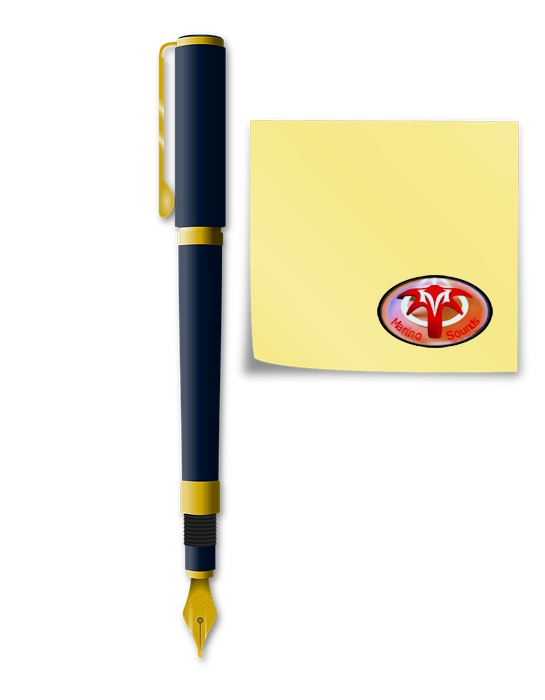

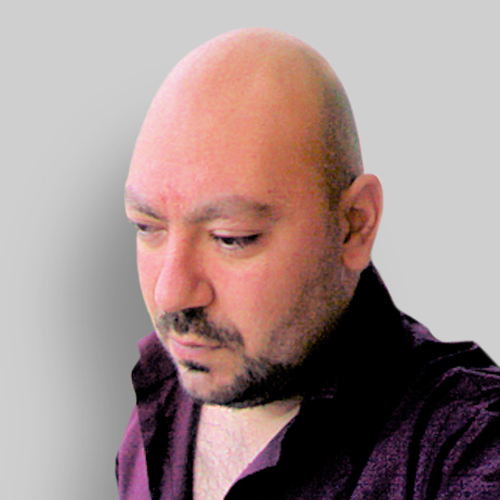 Manuel is a passionate, driven, and techsavvy AV technician,
Manuel is a passionate, driven, and techsavvy AV technician, 
